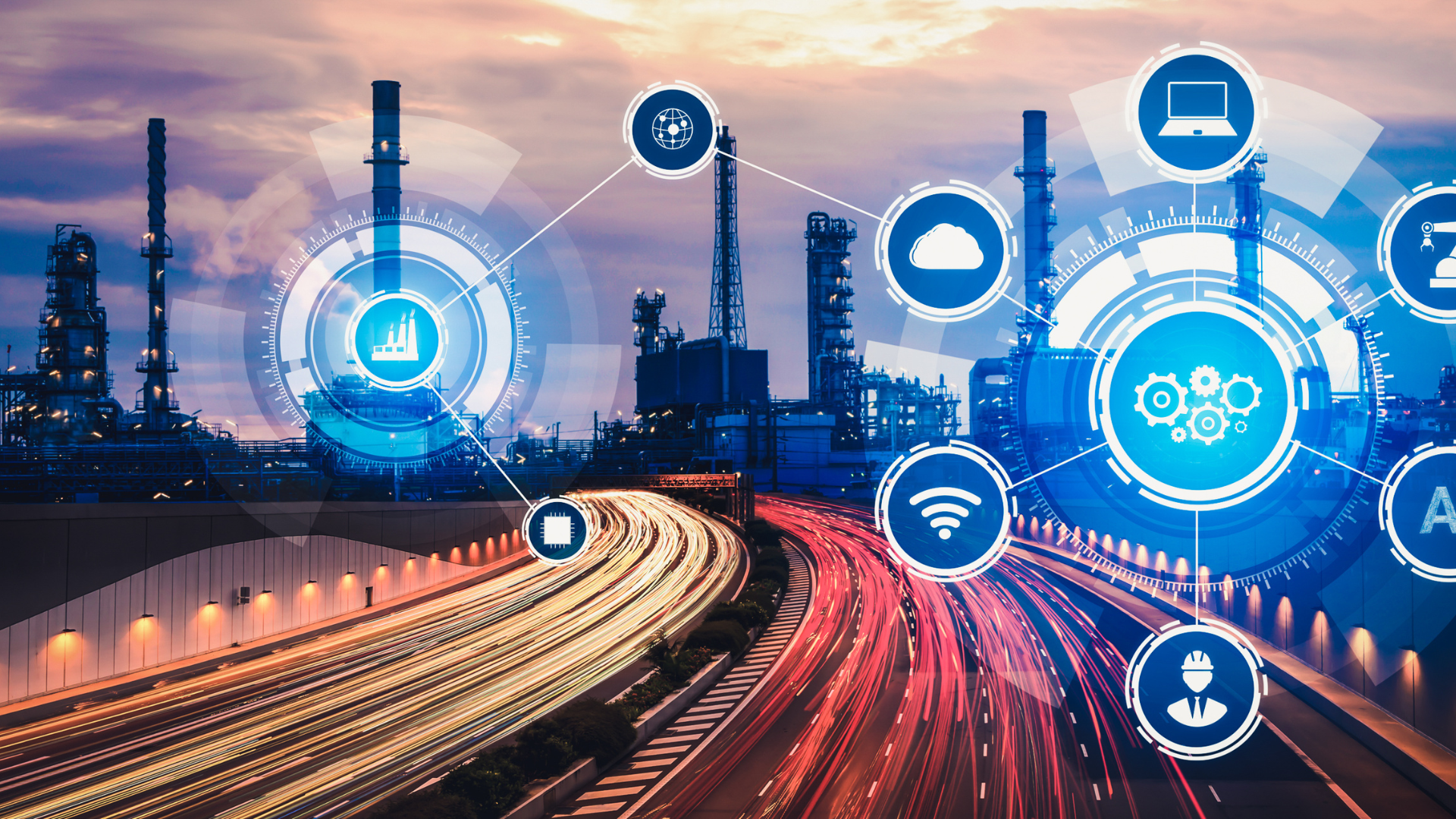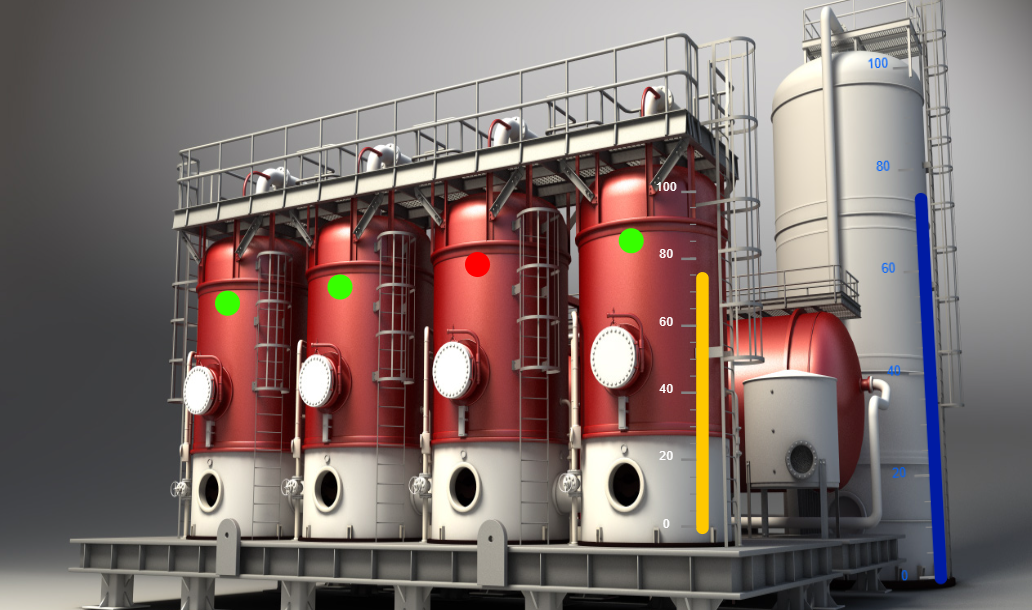What Is the 1st, 2nd, 3rd, and 4th Industrial Revolution?
What Is the 1st, 2nd, 3rd, and 4th Industrial Revolution?
The 4th industrial revolution, also affectionately known as Industry 4.0 benefits, represents a groundbreaking paradigm shift in the world of manufacturing and industrial sectors. The ongoing transformation fueled by the integration of awe-inspiring advanced technologies has truly captured the imagination of professionals worldwide. The seamless integration of these technologies has created an unparalleled experience, leaving professionals in awe of the possibilities that lie ahead. It's remarkable to witness how this transformative journey is shaping industries and revolutionizing the way we work. This revolutionary era is marked by cutting-edge innovations that are paving the way for unprecedented levels of efficiency, productivity, and sustainability. Embracing the wonders of Industry 4.0 promises to unlock limitless possibilities and propel industries towards a brighter future filled with endless opportunities for growth and success. This revolution builds upon the previous three industrial revolutions, each of which brought significant advancements and changes to our society.

First Industrial Revolution
The first industrial revolution, which emerged in the late 18th century, marked a significant turning point in human history. With the revolutionary introduction of mechanization powered by water and steam, tremendous progress was made in various industries. This groundbreaking and truly remarkable development has brought about an extraordinary transformation that has not only propelled economies forward but also ushered in a new era of unprecedented growth and prosperity. It is truly awe-inspiring to witness the positive impact it has had on various industries, creating countless opportunities for businesses to thrive and individuals to flourish. The implications of this phenomenal advancement are truly profound, as it continues to reshape the way we live, work, and interact with the world around us. It marked a shift from manual labor to machine-based production methods.
Second Industrial Revolution
The second industrial revolution, which unfolded in the late 19th century, marked a remarkable turning point in human history. The advent of electricity and the revolutionary concept of assembly line production during this era brought about a truly momentous wave of progress and innovation that has had an absolutely profound impact on our modern society. This groundbreaking era ushered in a new age of possibilities, enabling us to harness the power of electricity to drive unprecedented advancements in various fields. The introduction of assembly line production transformed the way we manufacture goods, leading to increased efficiency, streamlined processes, and mass production on an unprecedented scale. As a result, this era laid the foundation for the modern industrial world we know today and set the stage for countless technological breakthroughs that continue to shape our lives in remarkable ways. The introduction of electricity not only revolutionized how we power our world but also paved the way for countless technological advancements that have transformed every aspect of our lives. Moreover, the implementation of assembly line production completely revolutionized manufacturing processes, enabling mass production and making products more accessible to people from all walks of life. These groundbreaking developments during the second industrial revolution laid the foundation for a new era of growth, prosperity, and progress that continues to shape our world today. This revolution led to mass production and increased efficiency.
Third Industrial Revolution
The third industrial revolution, also widely known as the digital revolution, is often hailed as a groundbreaking era that commenced in the mid-20th century. This absolutely remarkable period has witnessed an astonishing array of groundbreaking advancements in the ever-evolving fields of electronics, telecommunications, and computer technology. These remarkable achievements have truly revolutionized the way we live, work, and connect with one another. The relentless pursuit of innovation during this period has resulted in extraordinary breakthroughs that have left a lasting impact on our society. It is truly awe-inspiring to witness the rapid pace at which these advancements are being made, pushing the boundaries of what was once thought possible. These revolutionary breakthroughs forever changed the way we live, work, and communicate with one another. It brought about automation and computerization in various industries.
Fourth Industrial Revolution
Describe the item or answer the question so that site visitors who are interested get more information. You can emphasize this text with bullets, italics or bold, and add links.
Industry 4.0 Benefits
In manufacturing specifically, Industry 4.0 brings numerous benefits such as increased productivity, improved efficiency through real-time data analysis and predictive maintenance, enhanced quality control through automation and robotics integration, optimized supply chain management through IoT connectivity across all stages of production. Absolutely! Industry 4.0 has indeed revolutionized the manufacturing sector, bringing significant advantages to businesses. The increased productivity and improved efficiency resulting from real-time data analysis and predictive maintenance have greatly optimized operations. Moreover, the integration of automation and robotics has enhanced quality control processes, ensuring consistent product quality. Additionally, IoT connectivity across all production stages has facilitated seamless supply chain management, leading to better coordination and reduced delays. It's truly exciting to witness these advancements in manufacturing!
Key Impacts of the 4th Industrial Revolution
The remarkable advancements in AI technology have truly made a profound impact on numerous industries, leaving no stone unturned. From the realm of healthcare to the intricacies of transportation logistics and even to the complexities of energy management systems, the awe-inspiring power of these innovative technologies has truly revolutionized every aspect of our lives. We are fortunate to witness this remarkable transformation unfold before our very eyes, as it paves the way for a more efficient, interconnected, and sustainable future. Each breakthrough in these fields brings with it a renewed sense of excitement and wonder, as we embrace the endless possibilities that lie ahead. It is truly remarkable how these innovations have reshaped our world, making it an even better place to live and work. It is awe-inspiring to witness how AI has seamlessly integrated itself into various sectors, enhancing efficiency, streamlining processes, and ultimately paving the way for a brighter future. As we embrace these technological innovations that define Industry 4.0 era, it is important for businesses to adapt their strategies accordingly to stay competitive in this rapidly changing landscape.
You might also like



